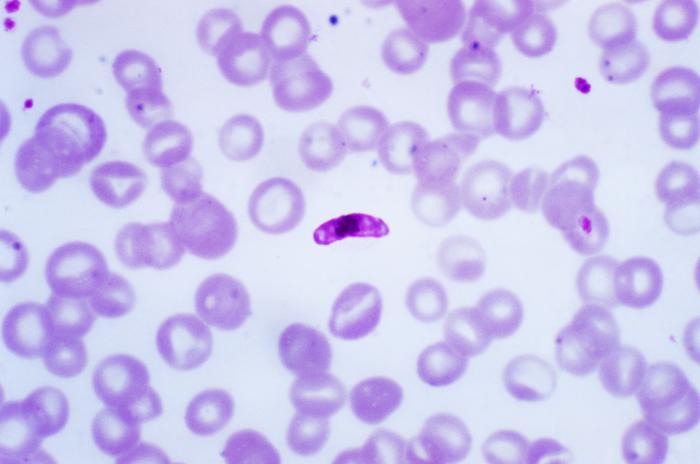New group of antimalarials identified
Interview with
Malaria is one of the world's biggest killers, with 214 million reported cases in  2015 alone. Unfortunately, things could get even worse as the malaria parasite has developed resistance to all the standard antimalarial drugs, making the need for new treatments ever greater. But, things are looking up as Eamon Comer and his colleagues at the Broad Institute at MIT and Harvard have discovered a whole new group of compounds which attack the parasite in a completely different way as Connie Orbach found out...
2015 alone. Unfortunately, things could get even worse as the malaria parasite has developed resistance to all the standard antimalarial drugs, making the need for new treatments ever greater. But, things are looking up as Eamon Comer and his colleagues at the Broad Institute at MIT and Harvard have discovered a whole new group of compounds which attack the parasite in a completely different way as Connie Orbach found out...
Eamon - We developed a series of compounds that operates through a new mechanism of action which stops protein synthesis in the malaria parasite and eventually results in killing it.
Connie - So, protein synthesis, that's kind of important to everything right?
Eamon - Absolutely, that's just a fundamental process. Once you shut that down, the parasite can't survive.
Connie - And how have you gone about looking for these compounds?
Eamon - Efforts in antimalarial drug discovery usually start by screening a collection of candidate small molecules for activity against the parasite. In our case, we imagined that antimalarials with new mechanisms of action might be discovered using our unique collection of Diversity Oriented Synthesis or DOS compounds. So these are compounds not typically represented in traditional pharmaceutical screening collections. They tend to be more complex and they have more three dimensional features reminiscent of natural products. We also looked for compounds that appeared to work in all three stages of the parasite life cycle and then, finally, compounds most likely to have properties necessary to become antimalarial drugs were prioritised.
Connie - You mentioned that this is important because it's combating the malaria parasite at every stage of the life cycle. Is that different to what we have now?
Eamon - Yes. So the current antimalarials typically only target the blood stage parasites. You could be receiving treatment for malaria but still be capable of transmitting the disease to other people. So drugs are really needed that target all stages of the malaria parasite to protect vulnerable populations and also to control the disease and prevent epidemics.
Connie - So where have you got to right now with this compound? What have you found that it can do and you've done some animal trials, right?
Eamon - Yes, we're finding that certain members of this series provide a single dose cure in animals. This is significant because none of the standard of care antimalarials work in a single dose in these models. So, for instance, certain of the currently available antimalarials require two doses a day for say three days, so this is quite important in the field because you're dealing with resource deficient areas and so it helps with compliance if you can just administer a single dose rather than requiring multiple doses over multiple days.
Connie - I can see the headline now "One drop treatment to cure malaria." That sounds really exciting but how long do you envision these next safety stages and clinical trial stages to happen before we can get this to a point where we're really getting it to the people that need it?
Eamon - So it typically takes twelve years or so from initial hypothesis to registration. We hope to have compounds going into clinical trials within the next four years but it all depends on how the safety assessment goes on these compounds.
Connie - It's a slow business you're in, isn't it?
Eamon - Absolutely!
Connie - You mentioned that to look for this new mechanism of action you went for a more complex type of molecule which is, I'm guessing, harder to make. Does that mean that this drug's likely to be a lot more expensive than current antimalarials?
Eamon - Not necessarily. I mean one thing we're learning from our pharmaceutical partners is that one of the biggest factors in terms of cost is the dose of the drug. So if we can come up with a compound that requires just one dose then that's a major factor in terms of cost. But also we actually think we can up with ways of making these very efficiently and competitive to traditional antimalarials.










Comments
Add a comment